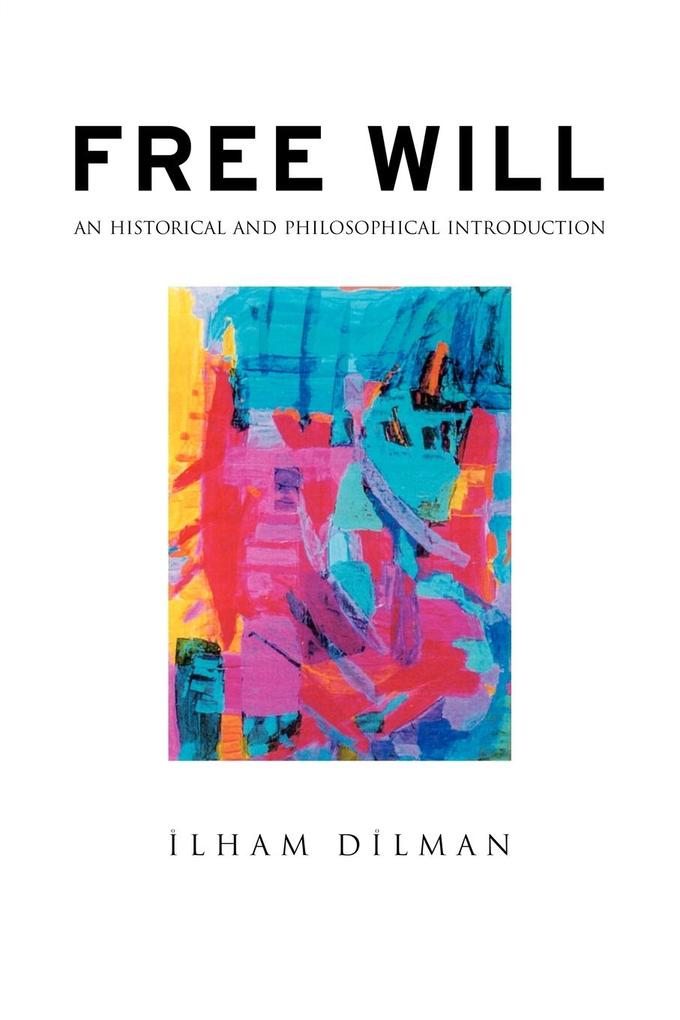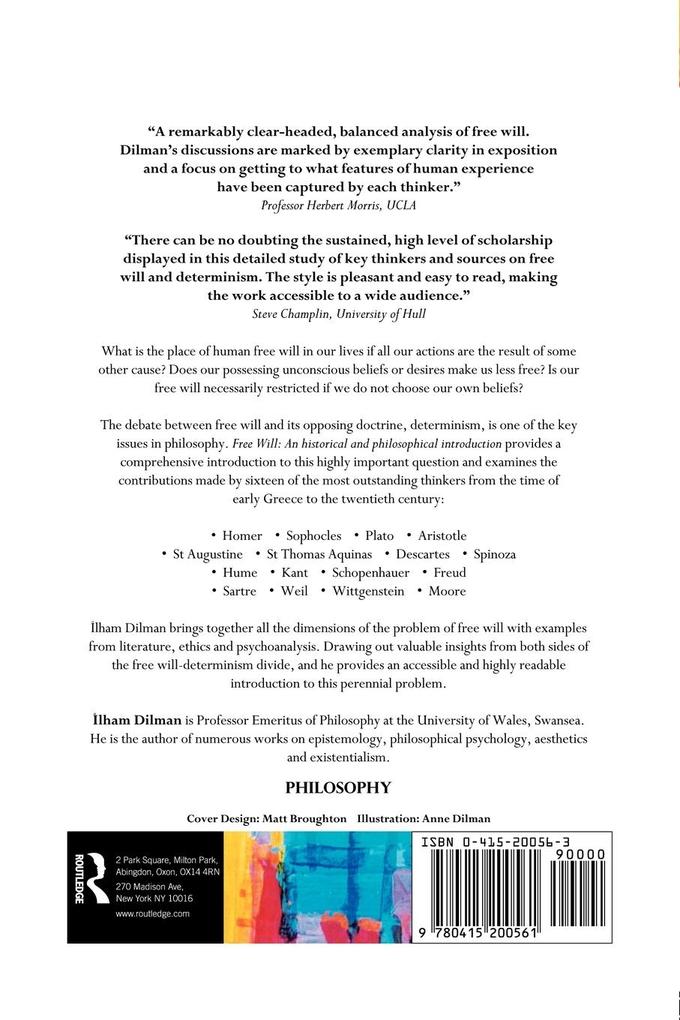What is the place of human free will in our lives if all our actions are the result of some other cause? Does our processing unconscious beliefs or desires make us less free? Is our free will necessarily restricted if we do not choose our own beliefs?
The debate between free will and its opposing doctrine, determinism, is one of the key issues in philosophy. Free Will: An historical and philosophical introduction provides a comprehensive introduction to this highly important question and examines the contributions made by sixteen of the most outstanding thinkers from the time of early Greece to the twentieth century:
*Homer *Sophocles *Platto *Aristotle *St Augustine *St Thomas Aquinas *Descaartes *Spinoza *Hume *Kant *Schopehauer *Freud *Sartre *Weil *Wittgenstein *Moore
Ilham Dilman brings together all the dimensions of the problem of free will with examples from literature, ethics and psychoanalysis. Drawing out valuable insights from both sides of the free will-determinism divide, and he provides an accessible and highly readable introduction to this perennial problem.
Inhaltsverzeichnis
Introduction; Part 1 Early Greek Thinkers; Chapter 1 Homer and the Iliad; Chapter 2 Sophocles' Oedipus; Chapter 3 Plato and Moral Determinism; Chapter 4 Aristotle; Part 2 The Coming of Age of Christianity; Chapter 5 St Augustine; Chapter 6 St Thomas Aquinas; Part 3 The Rise of Science; Chapter 7 Descartes' Dualism; Chapter 8 Spinoza; Chapter 9 Hume and Kant; Part 4 The Age of Psychology; Chapter 10 Schopenhauer; Chapter 11 Freud; Chapter 12 Sartre; Chapter 13 Simone Weil; Chapter 14 G E Moore; Chapter 15 Wittgenstein; Chapter 16 Conclusion;











